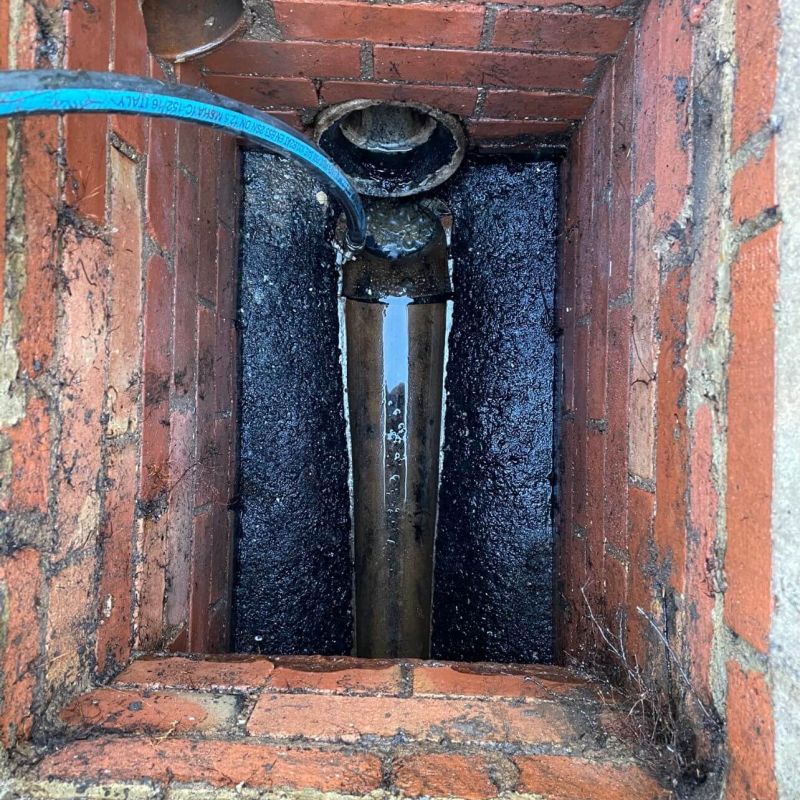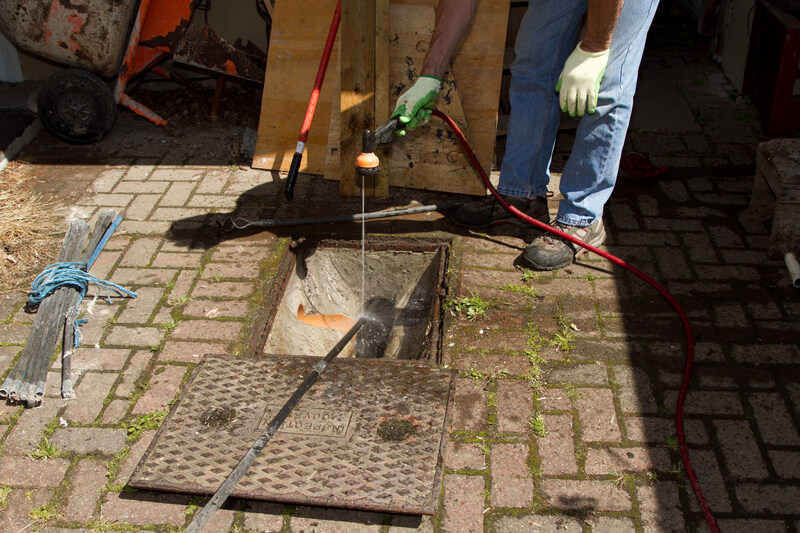Methods for Addressing a Blocked Drain Prior to Engaging Professional Assistance
Methods for Addressing a Blocked Drain Prior to Engaging Professional Assistance
Blog Article
This post below in relation to How to handle a clogged drain in your home is without a doubt motivating. Read it for yourself and see what you think about it.

Introduction
Handling a blocked drain can be an irritating experience, interfering with day-to-day activities and possibly causing damage to your residential property. However, before connecting to pipes specialists, there are steps you can take to attend to the concern on your own. In this guide, we'll discover do it yourself remedies and safety nets to tackle an obstructed drain effectively.
Recognizing the Problem
The first step in dealing with an obstructed drain is recognizing the indicators. Slow-moving water drainage, gurgling sounds, foul odors emanating from drains pipes, or water backing up prevail indicators of an obstructed drainpipe. Determining these indicators early can help protect against even more difficulties.
Choosing the Right Plumbing Solution
When choosing a plumbing service, consider aspects such as experience, licensing, and client evaluations. Select a credible plumbing technician with a track record of quality handiwork and clear pricing techniques.
Expense Factors to consider
The expense of professional drainpipe cleaning company can vary relying on the seriousness of the clog and the plumbing professional's rates. Request quotes from numerous providers and inquire about any surcharges to guarantee transparency and stay clear of surprises.
Safety and security Precautions
When attempting DIY drainpipe cleaning, prioritize safety. Wear safety handwear covers and glasses to prevent contact with damaging chemicals or germs. Never blend different drainpipe cleaning items, as this can generate harmful fumes.
Situation Researches
Real-life examples highlight the efficiency of do it yourself remedies and the relevance of timely specialist intervention in dealing with drain clogs.
Common Sources Of Blocked Drains
Comprehending the factors that contribute to drain pipes clogs is vital for reliable resolution. Common culprits consist of hair, soap scum, grease, food particles, and foreign things like sanitary items or paper towels. Tree roots attacking below ground pipes can likewise cause significant blockages.
Do it yourself Solutions
For minor blockages, several DIY solutions can be effective. Pouring boiling thin down the drain can aid liquify oil and debris. Sodium bicarbonate and vinegar or a blend of salt and cooking soda can serve as natural cleansers. Making use of a bettor or pipes snake to displace blockages is another alternative.
Devices and Devices
Having the right devices on hand can make DIY drain cleaning up more effective. A plunger is a flexible tool for removing blockages in sinks, commodes, and showers. A plumbing snake or auger can get to deeper clogs, while drainpipe cleansing chemicals can be utilized meticulously for persistent obstructions.
Safety nets
To stay clear of future obstructions, adopting safety nets is essential. Install drain guards or filters to catch hair and particles prior to they enter the pipelines. Routinely flush drains with hot water to dissolve oil build-up, and avoid dealing with oil or strong waste away.
When to Call an Expert
While do it yourself solutions can settle small blockages, specific indications suggest the requirement for specialist aid. Consistent blockages, foul odors despite cleaning initiatives, or numerous drains supporting simultaneously are warnings that call for skilled intervention.
Conclusion
By adhering to the ideas described in this overview, you can successfully tackle obstructed drains pipes and prevent future pipes issues. Whether going with do it yourself options or seeking specialist aid, punctual activity is crucial to keeping a healthy and balanced plumbing system and protecting the stability of your home.
How to Clear a Clogged Drain Yourself (And When to Call In the Professionals)
What Can Clog a Drain
Dirt Skin flakes Hair Grease Soap scum Food Offset pipes Tree roots Small objects Mineral buildup DIY Tricks to Unclog a Drain
You can fix this! Once you have identified the source of the clog (or have a vague idea), you can try one or a combination of these fixes in order to clear your plumbing.
Wire Hanger or Snake
Untangle and clear out hair from a drainpipe with a homemade snake. Use a straightened-out wire hanger with a 90-degree angle hook to locate the clog and drag out any unwanted material.
Remember not to push the clog further down to where the wire hanger cannot reach! If you need to follow up with a plunger, give it a try. Your efforts might be more successful after it’s been wire-snaked.
If you want to get fancy and don’t have a wire hanger to spare, head to the store and pick up a hand-operated drain snake. You can get one for $10-$30. It may save you the hassle, and provide additional length to reach deep into the clogged pipe.
Plunger
A cup plunger has a suction cup attached to a wooden handle. The rubber creates a seal around the drain, and increases the pressure force of the plunger.
Plunge for 30-second increments to loosen the clog. This may need to be repeated over the course of 15-20 minutes. Once plunged, run the water to flush the remaining material out of the drain.
Remember– never use a plunger if you have used a chemical drain cleaner. These chemicals can splash up from the force of the plunger and cause serious injury or burns.
Boiling Water
Hot water can sometimes break up materials into a flushable amount. Dirt, grease, and soap buildup requires heat in order to unstick from surfaces.
Take your kitchen kettle and heat your water to a boil. Once it reaches a rolling boil, pour it directly down the drain into the blockage. Carefully follow with plunging, if necessary.
Don’t worry if this takes more than one try! It can often take multiple kettles and repeated plunging in order to clear a particularly stubborn clog.
Chemical Drain Cleaner
As a last resort, pick up a bottle of chemical drain cleaner. Drain-cleaning chemicals are potent, and not very good for the environment.
You may need to wear protective eyewear in gloves before handling your bottle of chemical drain cleaner. Follow the instructions printed on the bottle, and flush with water as soon as the instructions allow. Do not follow with plunging.
Baking Soda and Vinegar
As a safer alternative to chemical drain cleaner, baking soda and vinegar can create a chemical reaction that clears tough clogs.
Combine one cup of cleaning vinegar with one cup of boiling water, and set aside. Once you have done this, pour half a cup of baking soda down the drain. Give the baking thirty seconds to settle and cover a large portion of the problem drain.
Following the baking soda, pour down your vinegar and hot water solution. Once the vinegar and baking soda combine, the mixture will bubble and fix. Let this reaction fizzle in the drain for about an hour.
After an hour, follow with a kettle’s worth of hot water. The heat and liquid should flush out any remaining material.
When to Call a Plumber
If your DIY attempts haven’t cleared your clog drain, it’s time to call in a professional. It’s not worth losing access to your kitchen sink or high-traffic bathroom. A clog in a vital area can keep you from the things you’d rather be doing, and derail your routine.
Anytime a clog is causing water to spread is a time to call in a plumbing service. What starts out as a little bit of water can quickly grow into serious, expensive water damage.
Additionally, a serious clog can result in burst pipes or serious leaks. Make sure you know when to take it seriously!
https://myguysnow.com/how-to-clear-a-clogged-drain-yourself-and-when-to-call-in-the-professionals/

Do you like reading up on Tips for Dealing with Clogged Drains and Sewer Lines? Make a comment down below. We would be glad to listen to your reactions about this content. In hopes that you visit us again in the near future. Loved our piece of writing? Please share it. Help someone else locate it. Thanks a lot for your time. Please check our site back soon.
Click Here Report this page